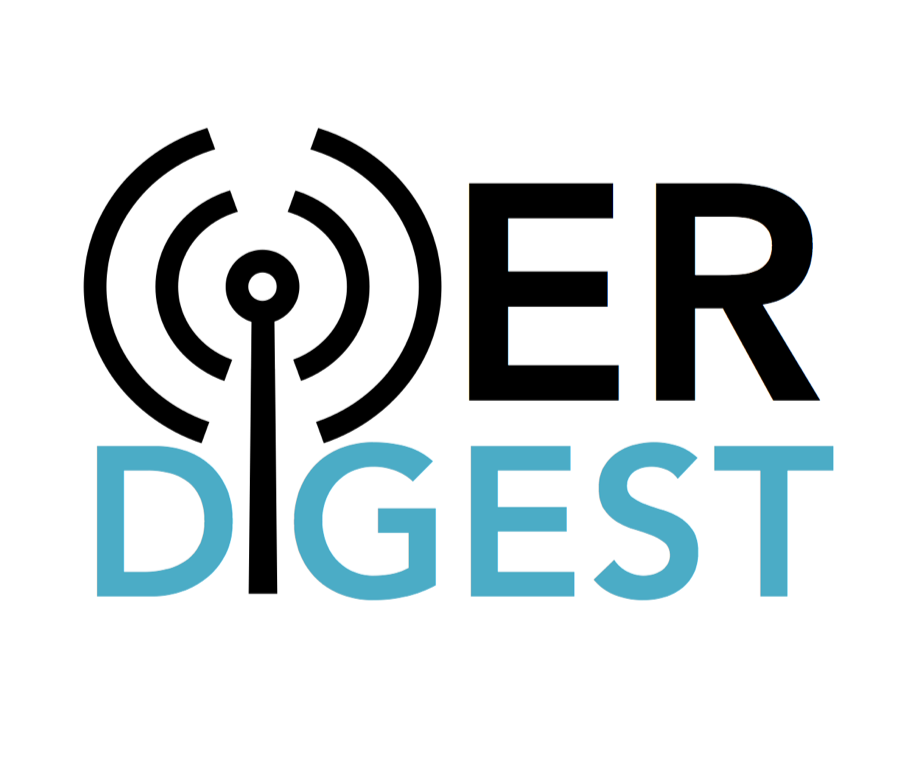OER Digest - December 3rd, 2020
From Cailyn Nagle (PIRG) | Volume 118 | December 3rd, 2020With updates from Kaitlyn Vitez
THE OER DIGEST
Your bi-weekly newsletter for open education updates, opportunities, and reminders
U.S. FEDERAL UPDATE: Final negotiations for the Fiscal Year 2021 federal budget are underway in Congress ahead of the December 11th deadline to fund the government. House Democrats and Senate Republicans have both issued budget proposals that differ significantly, and failure to reach an agreement would have dire consequences. One bright spot, however, is that both have pencilled in renewed funding for the Open Textbook Pilot grant program, which is expected to announce its third round of funding later this month. Especially at a time when campuses are seeking to expand their digital programs, there is a need to develop high quality, flexible materials that students can access no matter where they are. Track the process of renewing funding here. COURSE MARKING: University of North Carolina at Chapel Hill has added a Class Feature Tool to their course registration page. This feature allows faculty to include textbook costs,course format, syllabi, and other important information. As with most course marking initiatives, submission of the relevant data is voluntary for faculty. For the past several years, leaders from both student government and NCPIRG have been advocating for such a program to help students build a schedule that works for both their academic and financial situation. Most importantly, this Class Feature Tool is easily adopted by other institutions which use the PeopleSoft platform to manage course registration. AUTOMATIC TEXTBOOK BILLING: Texas A&M San Antonio has ended their “Jaguar Day One” automatic textbook billing program after listening to feedback from students, faculty, and the campus bookstore. The program automatically enrolled students for a $25 fee per credit hour - which while relatively low, was still more than some students thought was fair for some courses. Students raised concerns around their lack of choice, but also with the implementation of the program itself. Many students reported not receiving required course materials until weeks after the start of term, and some did not receive their materials at all. Texas A&M has decided to roll back the program and give students the option of where and how to purchase their materials for Spring 2021. Texas A&M's main campus is widely known for their successful open textbook program which has saved students over $1.5 million since its creation in 2017.
OPEN CONNECTIONS
Conferences, jobs, and other OER-related opportunities
JOB OPPORTUNITY: The Midwestern Higher Education Compact is looking for a part time remote Open Educational Resource Consultant, starting in January 2021 and working to April 2022. Applications close December 18th. Learn more here.JOB OPPORTUNITY: Boise State University is hiring a tenure track open educational resource librarian to join the Scholarly Communications and Data Management Unit. Applications close January 4th. Read more and apply here.
STORIES FROM THE FIELD
Quick snapshots of those making change on the ground level, and those impacted
FROM ARKANSAS: The University of Arkansas Cossatot was awarded the $2.2 million Title 3 Strengthening Institutions grant by the US Department of Education. UA Cossatot plans to use the grant to fund the campus OER program, expand tutoring, provide career guidance, and other important programs that will expand their capacity to serve low income students. Read more >>FROM MINNESOTA: M State is set to be the seventh Minnesota State college to create a zero textbook cost pathway. Currently, 48 M State classes require zero textbook costs but with the new program two degree programs can be entirely completed without any textbook costs. “For me personally,” shared Kylie Ashworth, an OER advocate and student, “to not have to worry about class fees, book fees or class materials would be a huge weight off my shoulders.” Read more >>ALSO FROM MINNESOTA: Mesabi Range College launched a zero textbook cost degree path for their Associate of Arts degree. With nearly half of faculty participating in the effort, Mesabi Range is focused on reducing the financial burden for students. ““I realized that I didn’t want a textbook to be the reason a student couldn’t afford to go home or buy groceries,” said communications studies professor Emily Werschay. Read more >>FROM BRITISH COLUMBIA: During the remote learning period Kwantlen Polytechnic University’s ZTC program saved students over $2 million. Growing to 419 participating faculty, from the original 75 participating faculty, the program includes 850 programs during the academic year. “At KPU we’re lucky to have many faculty advocates, the library, and the Office of Open Education who all shine a bright light on the possibilities these resources provide,” said Urooj Nizami, KPU’s open education strategist. Read more >>
HOT OFF THE PRESS
Each edition, we highlight an interesting, new, openly-licensed resource
Deeper Learning for All released an openly licensed gallery of images highlighting preK-12 students learning. The gallery includes sections by grade level, course subject, and classroom environment.
WEIGH IN
Great reads to repost or share and interesting discussions to consider
Great to Share >>
- LETTER: The Rutgers Open Affordable Textbook program saved students millions | Asbury Park Press
Interesting to Consider >>
- Copyright Limits and Learning: Lessons from the Covid-19 Quarantine | InfoJustice
- Why We Need Centers for Educational Innovation, Evaluation and Research | Inside HigherEd
Have suggestions for the next edition? Let us know at oerdigest@gmail.com, or tweet us @OERdigest.
The OER Digest is a public newsletter distributed to a broad group of stakeholders across the higher education community. Subscribe here.
